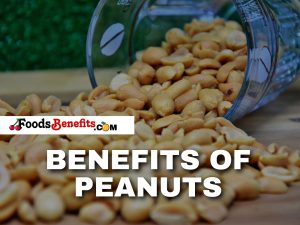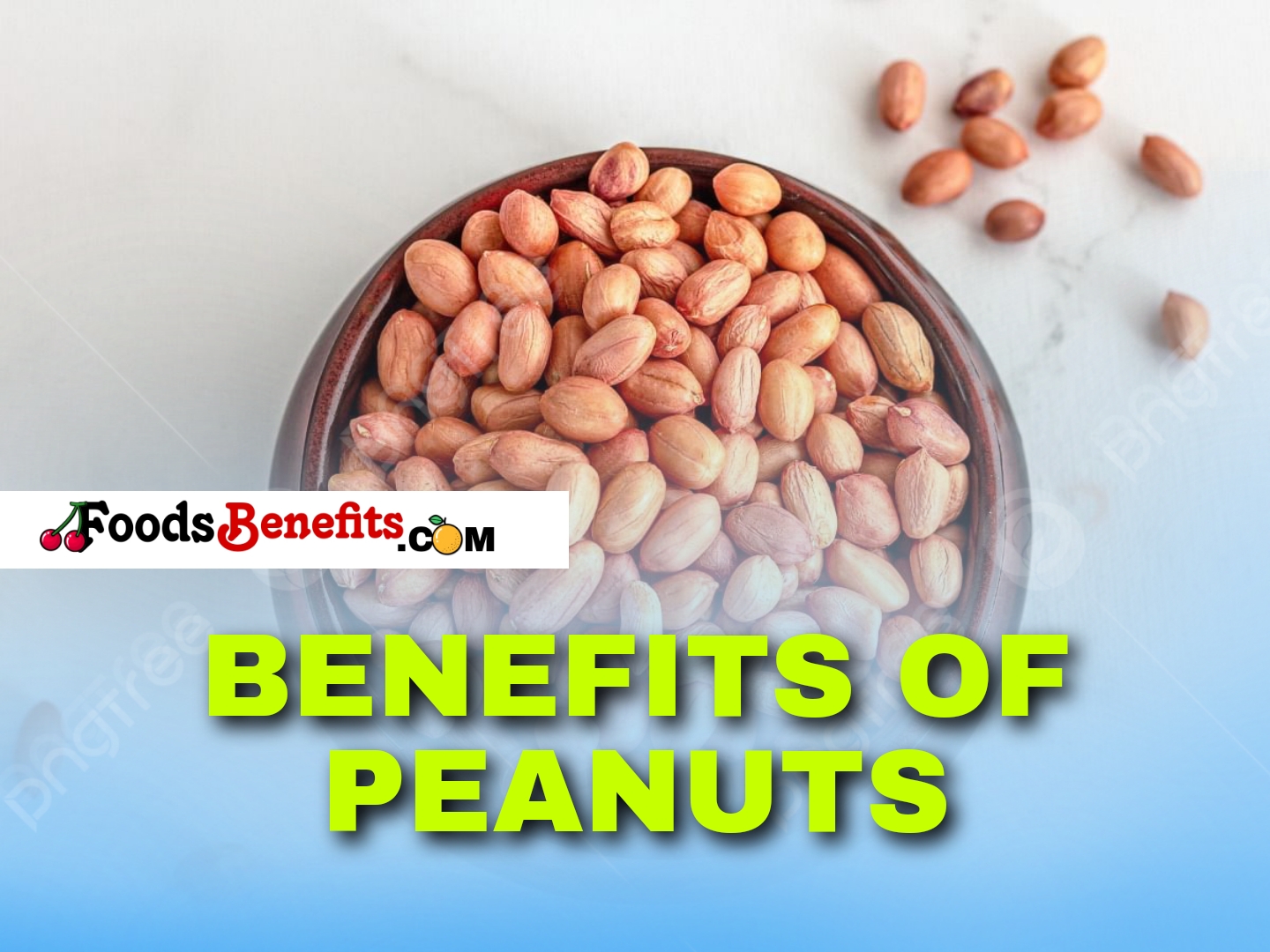The Benefits of Peanuts: A Nutritional
Nutritionists often underestimate the benefits of peanuts, which are actually legumes, like beans and lentils, despite being commonly mistaken for nuts. Nuts are a great addition to any well-balanced diet as they are packed with essential nutrients and offer numerous health benefits. These small but powerful seeds are incredibly nutritious whether used as an ingredient in meals, enjoyed as a raw snack, or both. This post will explore the many health benefits of peanuts and why they are an important part of a balanced diet.
Nutritional Profile of Peanuts
Peanuts are a highly nutritious food that provides essential nutrients for health and energy. A 100-gram serving of peanuts contains:
– Protein: Approximately 25 grams, making peanuts an excellent plant-based protein source.
– Healthy Fats: About 50 grams of healthful fat, mostly in the form of heart-protective monounsaturated and polyunsaturated fats.
– Vitamins: Peanuts are rich in B vitamins, including vitamin E, niacin (B3), and folate (B9), which are crucial for immune system stimulation and maintaining skin health.
– Minerals: Peanuts are abundant in phosphorus, potassium, zinc, and magnesium, which are essential for healthy bones and cell function.
– Fiber: Approximately 8 grams of fiber, which aids in weight management and digestive health.
The potential of peanuts to enhance heart health is among their most alluring advantages. Because they contain a lot of mono- and polyunsaturated fats, peanuts lower LDL (bad) cholesterol while raising HDL (good) cholesterol. This equilibrium helps lower the chance of developing heart disease.
Furthermore, peanuts have a high concentration of arginine, an amino acid that relaxes blood vessels to increase blood flow, lower blood pressure, and lessen the risk of cardiovascular problems.
Red wine and peanuts both contain resveratrol, a substance that is well-known for its antioxidant qualities. This polyphenol fights oxidative stress, which is linked to ageing and the onset of chronic diseases, in addition to protecting the heart.

Weight Management: A Satiety Solution
Contrary to popular belief, consuming peanuts regularly may actually assist with weight control. Although peanuts are high in fat and calories, they are incredibly satisfying and have a low glycemic index, meaning they do not cause rapid spikes in blood sugar levels. The combination of protein, healthy fats, and fiber makes peanuts particularly filling, curbing hunger and reducing overall calorie intake throughout the day.
Research suggests that people who include peanuts in their diet tend to consume fewer calories overall, as they feel fuller for longer periods. Additionally, the thermic effect of peanuts, which refers to the energy required to digest and metabolize them, contributes to greater calorie burn compared to other foods.
Also Read : Amazing Health Benefits of Banana
Peanuts and Brain Health : A Memory Booster
Peanuts are often called “brain food” due to their high niacin and vitamin E content. These nutrients have been associated with the prevention of neurodegenerative disorders like Alzheimer’s disease and the promotion of cognitive function. Vitamin E acts as an antioxidant, protecting brain cells from oxidative stress, while niacin is essential for repairing damaged DNA and reducing inflammation in the brain.
Moreover, studies have suggested that resveratrol in peanuts may enhance blood flow to the brain, potentially improving memory and cognitive performance. Therefore, peanuts are an excellent snack for individuals looking to enhance brain clarity and fend off cognitive decline.
Managing Blood Sugar Levels:
A Diabetic’s Ally
Peanuts can be a beneficial addition to a diet for people who are seeking to avoid or manage diabetes. Peanuts inhibit the absorption of sugars into the bloodstream, which helps control blood sugar levels due to their high fiber content and low glycemic index. Peanuts are an excellent snack for regulating energy levels because of their steady release of glucose, which helps to avoid crashes and spikes.
Magnesium, which has been shown to enhance insulin sensitivity and glucose metabolism—two factors crucial for successful blood sugar regulation—is also present in peanuts. Nuts can help balance blood sugar levels without the use of quick-acting carbohydrates when added to meals or snacks.
Rich in AntioxidBones.
Fighting Free Radicals
Peanuts are surprisingly high in antioxidants, which help counteract the damaging effects of free radicals in the body, preventing aging and cellular damage. Roasted peanuts have been found to contain as many antioxidants as some fruits, such as strawberries and blackberries. The skins of peanuts are particularly rich in polyphenols, which are substances with antioxidant properties.
These antioxidants can reduce the risk of chronic illnesses like cancer, heart disease, and arthritis, as well as combat inflammation. Resveratrol, known for its ability to protect the heart, also has anti-aging effects by shielding cells from oxidative damage.

Bone Health: Supporting Strong Bones
Minerals that are good for your bones include calcium, phosphorus, and magnesium, which can be found in peanuts. In particular, magnesium is necessary for maintaining strong bones and proper muscle function. It promotes bone mineral density in conjunction with calcium, which lowers the risk of osteoporosis and fractures as people age.
Additionally, peanuts are a great source of arginine, an amino acid that promotes the synthesis of nitric oxide, a chemical that aids in the maintenance and repair of bone tissue. For those who want to increase the strength and longevity of their bones, peanuts are a terrific addition to the diet.
Skin Health: Glowing from Within
Peanuts are rich in vitamin E, which helps to support healthy skin. Vitamin E acts as a strong antioxidant, protecting the skin from UV radiation, pollution, and free radical damage. It helps prevent skin discoloration, wrinkles, and premature aging by neutralizing these harmful substances.
Additionally, peanuts provide biotin, a B vitamin that strengthens hair and nails and promotes healthy skin. Regular consumption of peanuts can improve the natural glow of your skin, reduce inflammation, and even accelerate the healing of minor cuts.
Peanuts for Gut Health: Supporting Digestion
Peanuts contain fiber, which is essential for a healthy digestive system. Fiber helps prevent constipation, encourages regular bowel movements, and supports the growth of good bacteria in the gut. This is particularly important for maintaining a balanced microbiome, which has been linked to improved digestion and immunity.
Furthermore, some of the fibers in peanuts are prebiotic, which means they help probiotics (beneficial bacteria living in your intestines) grow more rapidly. Since prebiotics and probiotics play a vital role in gut health, peanuts are an excellent choice for anyone looking to improve their digestive health.
Versatility of Peanuts: Easy to Include in Your Diet
The versatility of peanuts is one of their best qualities. In addition to being enjoyed raw or roasted, peanuts can also be consumed as peanut butter and peanut oil. They make a great snack and can be added to baked goods, salads, smoothies, and soups. This makes it easy to incorporate peanuts into your diet regularly and enjoy all of their health benefits.
You can try peanut butter and apple slices for a nutrient-dense snack, or add peanuts for extra crunch and protein to your favorite stir-fry. Peanuts are a wonderful addition to any healthy, well-balanced diet, no matter how you choose to consume them.
Peanuts and Allergies: A Word of Caution
While peanuts offer numerous health benefits, it’s important to note that they are a common allergen. Peanut allergies can range from mild to severe and can cause life-threatening reactions in some individuals. Those with peanut allergies should avoid peanuts and peanut-containing products altogether and consult with a healthcare provider regarding safe dietary options.
Conclusion: A Nutritional Powerhouse Worth Adding to Your Diet
Peanuts are more than just a basic snack. They are an abundant source of vital nutrients that promote heart health, cognitive function, weight control, and many other benefits. Including peanuts in your diet can have several positive effects on your health. They are filling, high in protein, tasty, and adaptable. However, it’s crucial to be aware of allergies and ensure that peanuts are part of a healthy diet.
Nuts have an amazing nutritional profile, making them a powerful force for overall well-being and health.

